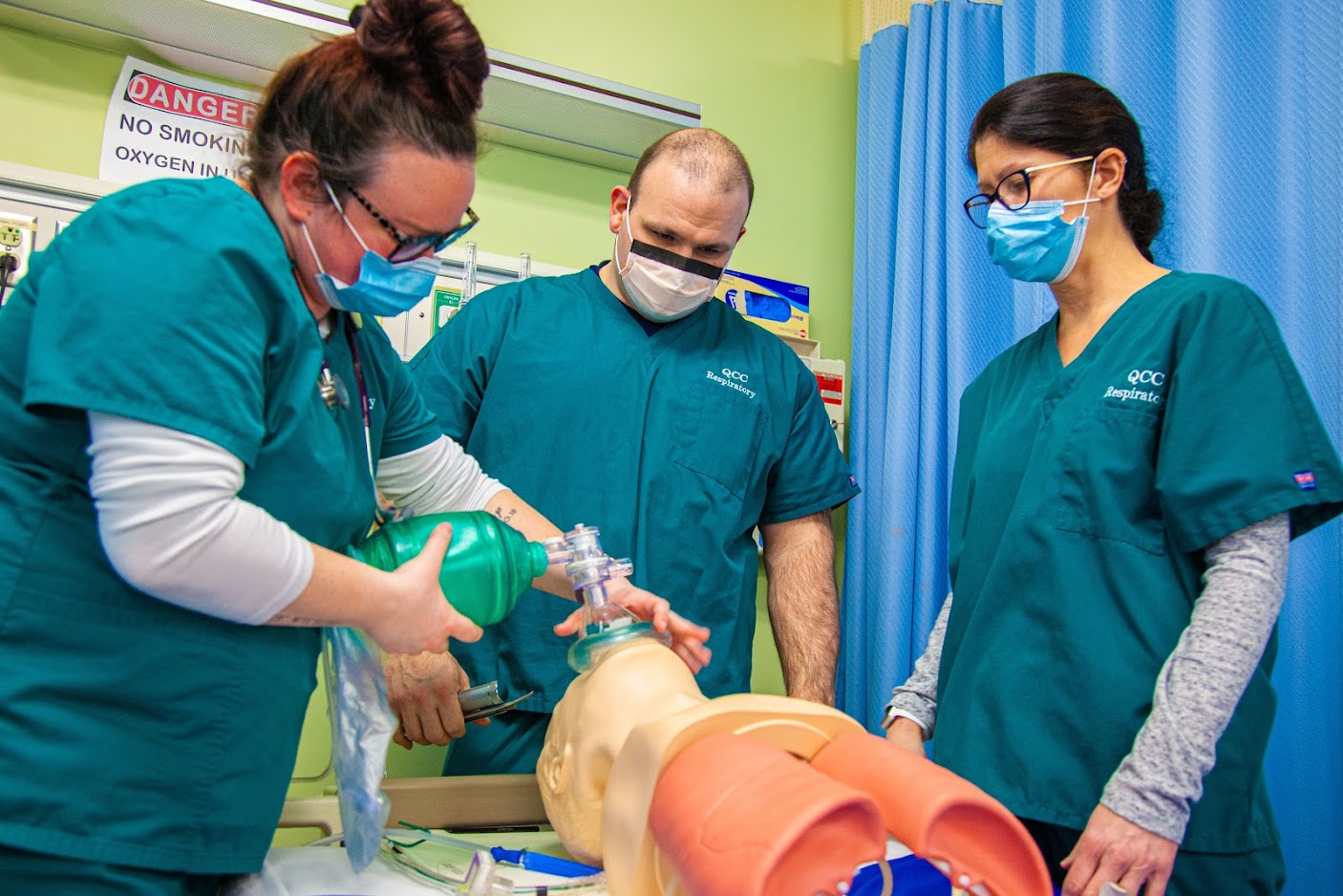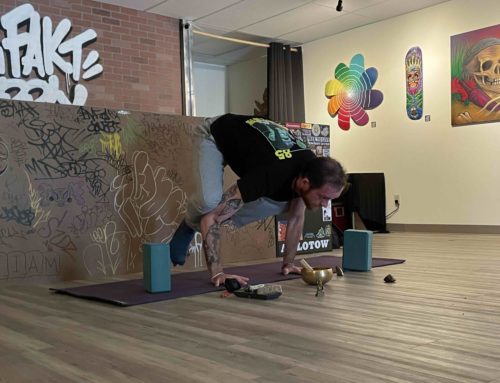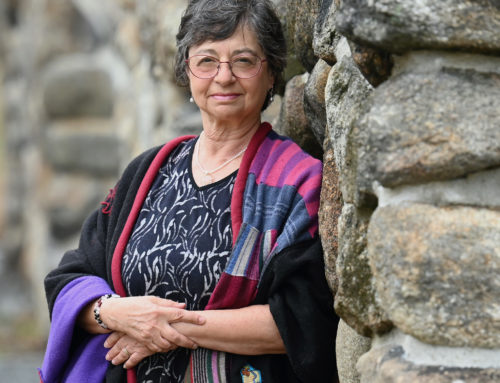WORCESTER – Respiratory therapists have a vitally important job. They support the cardiopulmonary health and well-being of patients from birth to the moment they take their last breath.
Respiratory therapists provide direct patient care to those with disorders that affect the lungs and impair the ability to breathe normally. They play a significant role in the treatment and management of a variety of patients, like the premature newborns, and victims of asthma and heart attacks, or anyone suffering from lung disease or COVID-19.
With such skilled healthcare professionals in high demand in a post-pandemic world, Quinsigamond Community College’s Respiratory Care program has been recently recognized for successfully training such specialists. The program has received the distinguished Registered Respiratory Therapist (RRT) Credentialing Success Award from the Commission on Accreditation for Respiratory Care (CoARC). QCC has joined a select group of programs that received this national recognition based on a high-level performance of key accreditation metrics.
“The students of QCC have labored diligently to strive for excellence in this respected profession by earning the highly-desirable Registered Respiratory Therapist credential,” said Professor Emerita Karen Kaletski Dufault. “I am thrilled with their success and demonstration of skillfulness in their chosen profession.”
QCC’s Respiratory Care is an 18-month program that prepares its students for employment as allied health practitioners in the specialty area of pulmonary medicine and a career as an advanced level respiratory care practitioner.
QCC students receive client care experience at clinical education sites, which have been established at a number of healthcare facilities in the Worcester area. All students are supervised by program faculty who have years of expertise in the clinical arena.
Graduates of this program are eligible to attempt the credentialing examinations offered by the National Board for Respiratory Care. Upon successful completion of this process, graduates receive the Registered Respiratory Therapist (RRT) credential; and students become Pediatric Advanced Life Support (PALS) certified, Advanced Cardiac Life Support (ACLS) certified, and complete the Neonatal Resuscitation Program (NRP).
Respiratory therapists can be employed in a variety of settings, including acute and chronic care hospitals; long-term care and rehabilitation centers; sleep disorders laboratories; pulmonary diagnostic clinics; medical home care agencies; and medical equipment sales/service companies.
The award was presented as part of CoARC’s continued efforts to value the RRT credential as a standard of professional achievement. The CoARC views the RRT credential as a measure of a program’s success by inspiring its graduates to achieve their highest educational and professional aspirations.
Eligibility for the award requires programs to have three or more years of outcome data, hold accreditation without a progress report, document RRT credentialing success of 90 percent or higher, and meet or exceed core thresholds for the Therapist Multiple Choice (TMC) examination high cut score and retention.
From 2017 to 2019, QCC had 100 percent of its students achieve the high cut
score. The CoARC threshold for retention is 70 percent and QCC had a 96 percent retention rate for the same three-year span.
“This is the first time that this program has achieved this recognition and it could not have been done without the leadership of Karen Dufault, who was the previous program coordinator/director until she retired in 2020,” said Assistant Professor of Respiratory Care, Keith Hirst.
He also said Amy Hogan, current director of clinical education, along with all the current and past clinical instructors, clinical sites, and advisory board members, QCC administration, and graduates of the program all played a large role in this award.
Even prior to COVID in 2018, the Bureau of Labor Statistics (BLS) reported that the demand for respiratory therapists was projected to rise 23 percent from 2016 to 2026, faster than any other profession. The BLS said an aging-population will lead to an increased dependence on respiratory therapy services.
“Over this same timeframe (2017-2019), we had a 100 percent job placement rate within six months of graduation, as well as 100 percent employer and graduate satisfaction rates,” Hirst said.
To learn more about QCC’s Respiratory Care Program, www.qcc.edu/academics/healthcare/respiratory-care.







Leave A Comment